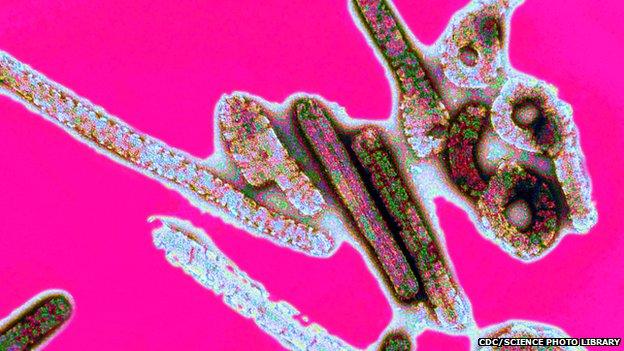Ebola crisis: Government response 'far too slow'
- Published
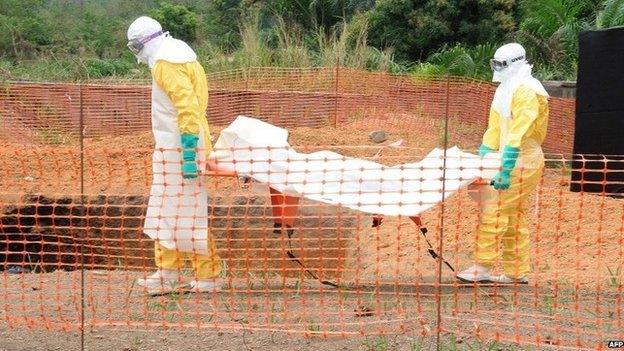
The initial international response to the Ebola outbreak was criticised as "totally inadequate"
The government's response to the Ebola outbreak was "far too slow" and may have contributed to the loss of lives, a committee of MPs has said.
The Public Accounts Committee said the government did not release funds quickly enough to deal with the crisis.
It also said the decision to suspend flights to areas affected by the disease had been "political".
The government said its actions in Sierra Leone had saved rather than cost lives.
Chris Whitty, chief scientific adviser to the Department for International Development, said the "British-led response" to the Ebola crisis in Sierra Leone had brought down the number of cases reported each week from 537 in November to 70 last week.
'Political decision'
But the department, which has overseen the UK's involvement in the crisis in West Africa, was described by the MPs as not having the "experience and capability" to cope with the outbreak.
The committee said there had also been an "unfortunate time lag between the department's recognition that it had to act and its allocation of funding to deal with the outbreak".
It said: "In early August 2014, it had announced £5m of support; by September, this had risen to £100m and by the time of our hearing, it had reached £230m.
"Had the department acted sooner, both lives and money would have been saved."
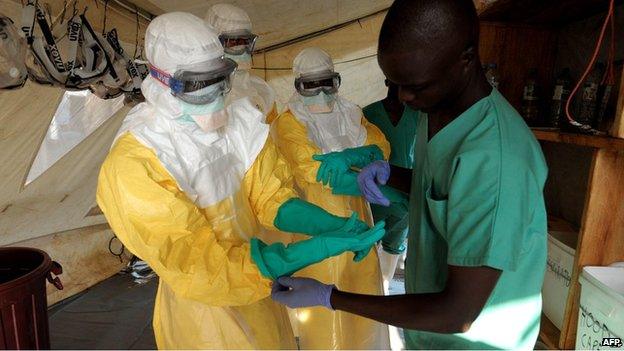
The response to the Ebola outbreak was hampered by a lack of medical infrastructure, the report said
The committee praised the "bravery" of British volunteers and members of the armed forces working in Sierra Leone, but it said the government had not paid enough attention to organisations on the ground, such as Medecins Sans Frontieres, who were warning of the seriousness of the outbreak.
It also described the decision to suspend flights to areas affected by Ebola as one with "no scientific justification".
"The revocation of licences to carriers to fly direct to the region was a political decision with no basis in science and was inconsistent with World Health Organization (WHO) advice," the committee said.
"In our judgement, it will inevitably have led to an increase in the costs of dealing with the outbreak and, potentially, to further loss of life."
The MPs recommended that:
DFID should take a lead role in the international community's efforts to learn lessons from the Ebola outbreak
Procedures and protocols should be in place to respond quickly to developing public health emergencies in countries which receive UK aid
A detailed contingency plan should be created and maintained for sudden-onset medical emergencies
Investment should be prioritised in local health infrastructure for developing countries in receipt of UK aid
Developing countries should be supported to prevent similar disasters in the future
A "rigorous evaluation" of all aspects of the UK's response to the crisis should be published once the outbreak is under control
'Unprecedented outbreaks'
The initial response of the international community to the Ebola outbreak was also criticised as "totally inadequate".
The committee said the World Health Organization had "rightly been criticised for failing to act adequately to prevent the spread of disease between December 2013 and July 2014".
But a delay in responding to the crisis was partly caused by an absence of organisations "willing and capable" of building, among other things, Ebola treatment facilities in affected countries.
The lack of health infrastructure also "inhibited" a quicker response to the crisis, it said.
The committee said there were "promising signs" the government's intervention was having a "tangible" impact, but it said there was still uncertainty over the trajectory of the outbreak.
International Development Secretary Justine Greening said: "Britain's decision to shoulder responsibility for tackling the Ebola outbreak in Sierra Leone has saved lives, not cost lives.
"The UK cannot disease-proof every developing country in the world from potential unprecedented outbreaks but we can offer our full support when they strike, as we did in Sierra Leone before any other country and at considerable risk to British lives.
"Everyone agrees that the World Health Organization should have reacted faster, and the global system must reform to improve collective detection and reaction."
- Published5 November 2014
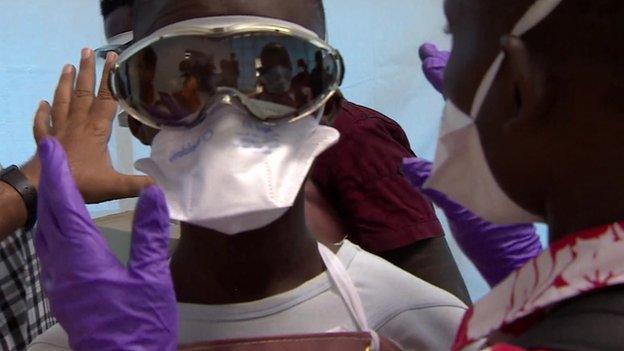
- Published9 February 2015
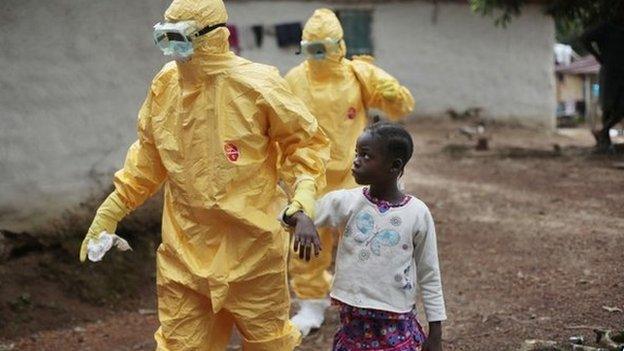
- Published27 March 2015
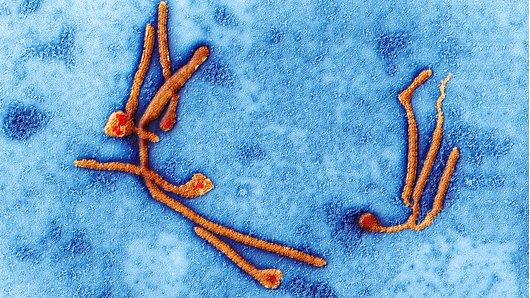
- Published14 January 2016
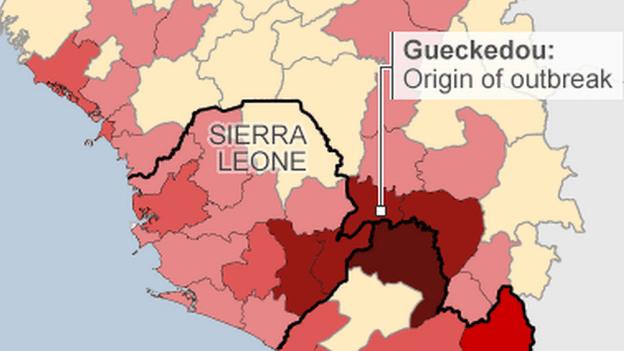
- Published30 December 2014
